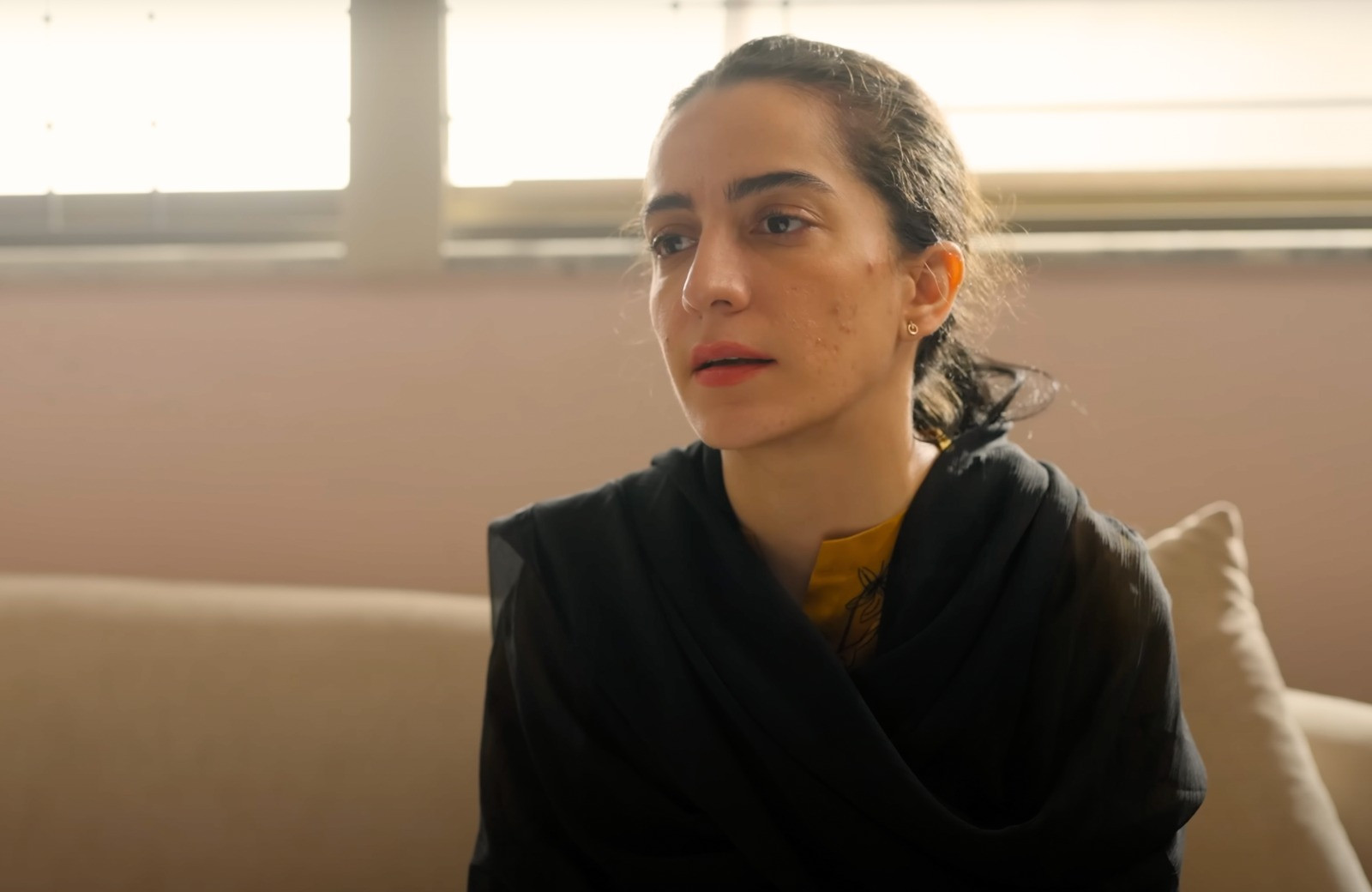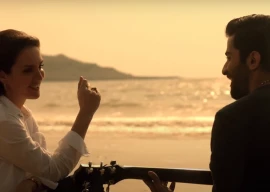
‘Roshan Raahein’ review: Sarmad Khoosat’s telefilm trades reflection for naive optimism
Filmmaker’s latest fails to impress despite promising premise and brilliant lead performance by Rasti Farooq
KARACHI:
When concrete first found the unpaved roads of my small neighbourhood in Multan, there was a palpable shift in the air. A paved road was first a promise, later a prerequisite of development. I was only twelve then but even I could feel the joy of all men pricking my eyes. It was the children who had to be pulled off first when the project began while the men courted the prospect of better prospects.
Years later, I presume, the young boys of that street grew up and became men, the next generation to feel inconvenienced by roads unlit, their remaking often stretching to months (sometimes longer). As I watched Sarmad Khoosat’s latest offering, Maryam Mehmood resurrected for me a sense of discovering the same, familiar loss of mobility and future.
A broken road, a darkened road might inconvenience men but it incapacitates others. Inconvenience is bad but I venture not many men lose sleep over all the ways a night could go wrong in the dark - unlike Maryam and many women.
What about women?
Marking his return to telefilms, Khoosat’s Roshan Raahein follows Maryam, played by the brilliant Rasti Farooq, a young working woman who gets off the bus one day after work only to find her usual road to home torn up and under construction. Hannah (Aleeza Fatima), a bright college student who takes the bus with Maryam, introduces her to another route through the field with no streetlights. Roshan Raahein seizes the all-too-common sight of a plaintive dug-out road after nightfall to ask: what about women?
The Kamli director is joined by Nirmal Bano who also penned the story for his 2019 offering Zindagi Tamasha. To his credit, Khoosat’s protagonist is grounded in reality. A pharmacist by profession, Maryam is patient and hopeful to unite with her Sharjah-based husband, Uzair, yet never just waiting. In the opening scene, she dutifully searches the cricket stadium on her mobile phone, as he guides her to himself over a phone call from the match. At work, she relents to her boss’ constraints (Khoosat) and her male coworker’s wisdom. While trying to lodge a request for streetlights, her unblinking stare turns more acidic with every visit as if daring men to dismiss her.
Yet dismissed she is and repeatedly so. Rasti emerges a natural in portraying an ordinary woman who picks her battles as need be - neither pliant nor defiant. However, for those expecting a tale of sisterhood or community organising, Roshan Raahein shoves change in the backseat of one rousing speech. Sania Saeed’s character as Maryam’s mother, a single parent and a housewife, is frankly wasted on the sidelines; she struggles to understand the crisis affecting her daughter for the most part, her face twisted in a look of puzzling concern. Then again, what hope could streetlights lend to someone already immobile?
Writing on the wall
Khoosat’s latest has two villains, patriarchy and ineffective bureaucracy, captured with his usual flair, the worst always implied, never indulged. And yet again, consistent with his past directorial ventures, he remains apprehensive to trust his audience. Whatever is left unsaid is followed by an impulsive explanation. The first half of the film attempts to layer an intuitive symbolism, relaying Maryam’s recognition of the city as a man’s world. The city’s walls advertise a men’s fragrance: ‘Alfa Scent,’ sporting a close-up of a model, his eyes a deeper red than the perfume, an unblinking stare. If this wasn’t already too on the nose, posters of a shirtless, ripped man invite people to a bodybuilding competition.
Similar to this ‘wall of masculinity,’ Khoosat erects a ‘wall of irony’ in the councillor’s office when Maryam goes to request streetlights. Once again, the camera coincides with her gaze, fixing on campaign posters for councillor Asif Cheema of Roshan Pakistan Tehreek, for a union council in Suraj Block, whose electoral symbol is sunglasses.
A small world
There is a better metaphor here at play that’s lost to the film’s premature hope, of development’s many promises and all that becomes collateral in this ambition. When Maryam brings up the dugout, the councillor rhetorically asks, “So, for whom is all this happening?” In the bureaucratic humdrum, it’s easier to tell Maryam to sit at home until the repairs are done than to install streetlights.
Her husband and the men in the neighbourhood agree. Indeed, what reason could draw a woman out of the confines of her home in the dark? The ignorance is genuine, born out of disregard, not malice - that one leads to the other could’ve been one diagnosis. But the telefilm trades reflection for naive optimism.
The protagonist becomes a heroine, the patriarchs are shamed and the living room turns into a theatrical recall of early Pakistani social film that tells instead of showing. In its 45-minute runtime, Maryam walks the road thrice with a crawling unease that never turns violent. But much of this rising tension is steadily lost to scenes at the government offices, their administrative tedium infecting the whole pace.
All that could have been forgiven if the final act had not rammed the premise into a happy ending. As the telefilm endured its climax, I turned not to my childhood but towards the broken road behind my neighbourhood’s block - a similar scene of dirt, concrete and the citizenry’s taxes lazily funnelled out. Despite its ambitious premise, Khoosat succumbs to telling a hero’s story rather than a people’s. Is there even writing on the wall to decipher? An allegory to unpack? It appears that streetlights mean little beyond themselves in the small world of Roshan Raahein.
Have something to add to the story? Share it in the comments below.


1730355716-0/Copy-of-Untitled-(59)1730355716-0-270x192.webp)
1730276684-0/Copy-of-Untitled-(55)1730276684-0-270x192.webp)
1730095495-1/WhatsApp-Image-2024-10-28-at-11-04-18-(1)1730095495-1-270x192.webp)










COMMENTS (1)
Comments are moderated and generally will be posted if they are on-topic and not abusive.
For more information, please see our Comments FAQ